Arts & Entertainment
Queer history becomes ‘Visible’ on new Apple TV docuseries
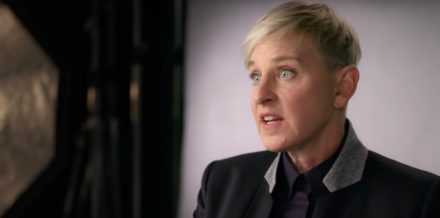
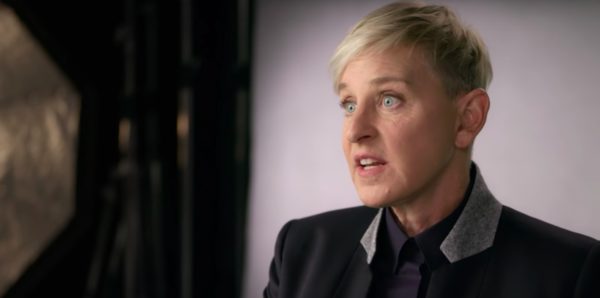
At a time when television is setting new records in terms of onscreen recognition for LGBTQ identities and issues, it might be easy – especially for the younger among us – to forget that it wasn’t always that way.
There was a time, not long ago, when one might never even know LGBTQ people existed based on what they saw on TV. Such figures as Liberace and Paul Lynde, who are now seen as representing a sort of queer proto-visibility with their flamboyant onscreen personas, passed in their day as straight to the majority of their viewing public, incredible as it may seem to us now; and Stonewall, now widely known as one of the most significant moments in the struggle for LGBTQ equality, was never mentioned in a single network news broadcast when it happened, a mere 50 years ago.
Partly because of the television industry’s suppression of all things queer during most of its history, most of LGBTQ history has long been invisible, preserved only in the memories of those who took part, and in greater danger of being lost forever with the passing of each succeeding generation.
Fortunately, embedded within the story of television itself is an entire narrative revealing the queer history that was taking place right before the eyes of millions of viewers, even as it was happening – and thanks to “Visible: Out on Television,” a new 5-part mini-docuseries debuting this weekend on Apple TV+, it’s a history that is now being told, out, proud and queer.
Created by Emmy-nomiinated filmmakers Ryan White and Jessica Hargrave, the series investigates the importance of television as an intimate medium that has shaped the American conscience – and illuminates how the LGBTQ movement has shaped television. It combines archival footage, interviews with key players from the movement and the screen, and narrations by community icons Janet Mock, Margaret Cho, Asia Kate Dillon, Neil Patrick Harris and Lena Waithe, to explore themes such as invisibility, homophobia, the evolution of the LGBTQ character, and coming out in the television industry.
Each hour long episode focuses on an era in the timeline of television history, paralleling the evolution of queer representation in the medium with the cultural history that was occurring around it.
*DISCLAIMER: SPOILERS BELOW
The first installment, titled “The Dark Ages,” gives us a chilling look at an era that surely exemplifies what the slogan “Make America Great Again” was meant to evoke in the minds of a nostalgic older generation – at least, those among them that had been privileged enough to ignore its inequality and injustices. We are reminded that the first mention of the word “homosexual” came in the televised Army-McCarthy hearings of 1954, during discussions about the security risks posed by LGBTQ government employees whose “deviant” lifestyle presumptively made them vulnerable to manipulation by Communist agents; that during the 1960s, the news media, including respected CBS anchor Mike Wallace, hosted “experts” of the day who propounded the belief that homosexuality was a curable psychological disorder; and that Lance Loud, the first openly homosexual person to appear on television when he was part of “An American Family,” the docuseries that followed his household for thirteen weeks in 1973, was demonized and vilified by a press that called him “leechlike” and described him as “an evil flower.” In each case, it’s impossible to ignore the echoes of similar homophobic rhetoric that has resurged during the Trump era.
Yet in the same hour, we are also shown the signs of hope that blossomed in the midst of all this darkness, through the gradual foothold that was made by an LGBTQ presence on television, from the non-stereotypical gender presentation of coded characters like Sheila Kuehl’s Zelda on “The Many Adventures of Dobie Gillis” and Lynde’s Uncle Arthur on “Bewitched,” to the groundbreaking depictions of openly queer people on Norman Lear’s “All in the Family.” The episode ends with the glimmer of an even brighter future that appeared with the emergence of openly gay Harvey Milk as a substantial political figure.
That we know all too well how his story ends gives us all the more reason to want to binge watch straight through each of these five excellent episodes.
With insight and commentary from familiar contemporary figures (such as Wanda Sykes and Wilson Cruz, both of whom are also executive producers, along with director White), historic queer icons (like Ellen DeGeneres and Bruce Vilanch), and lesser-known voices from the early days of LGBTQ activism, “Visible” presents a thoughtful, emotionally resonant, clearly focused, and deeply informative look at queer history as it fought its way into mainstream consciousness through a powerful medium that still connects us all. It’s a must-see event for LGBTQ audiences who thirst for knowledge about the community’s past, yes – but also for anyone who wants to gain an understanding of how representation on TV works to shape the culture surrounding it, as well as why it matters.
The show drops on Apple TV+ on Friday, February 14. You can watch the trailer below.

More than a dozen LGBTQ athletes won medals at the Milan Cortina Winter Olympics that ended on Sunday.
Cayla Barnes, Hilary Knight, and Alex Carpenter are LGBTQ members of the U.S. women’s hockey team that won a gold medal after they defeated Canada in overtime. Knight the day before the Feb. 19 match proposed to her girlfriend, Brittany Bowe, an Olympic speed skater.
French ice dancer Guillaume Cizeron, who is gay, and his partner Laurence Fournier Beaudry won gold. American alpine skier Breezy Johnson, who is bisexual, won gold in the women’s downhill. Amber Glenn, who identifies as bisexual and pansexual, was part of the American figure skating team that won gold in the team event.
Swiss freestyle skier Mathilde Gremaud, who is in a relationship with Vali Höll, an Austrian mountain biker, won gold in women’s freeski slopestyle.
Bruce Mouat, who is the captain of the British curling team that won a silver medal, is gay. Six members of the Canadian women’s hockey team — Emily Clark, Erin Ambrose, Emerance Maschmeyer, Brianne Jenner, Laura Stacey, and Marie-Philip Poulin — that won silver are LGBTQ.
Swedish freestyle skier Sandra Naeslund, who is a lesbian, won a bronze medal in ski cross.
Belgian speed skater Tineke den Dulk, who is bisexual, was part of her country’s mixed 2000-meter relay that won bronze. Canadian ice dancer Paul Poirier, who is gay, and his partner, Piper Gilles, won bronze.
Laura Zimmermann, who is queer, is a member of the Swiss women’s hockey team that won bronze when they defeated Sweden.
Outsports.com notes all of the LGBTQ Olympians who competed at the games and who medaled.
Theater
José Zayas brings ‘The House of Bernarda Alba’ to GALA Hispanic Theatre
Gay Spanish playwright Federico García Lorca wrote masterpiece before 1936 execution

‘The House of Bernarda Alba’
Through March 1
GALA Hispanic Theatre
3333 14th St., N.W.
$27-$52
Galatheatre.org
In Federico García Lorca’s “The House of Bernarda Alba,” now at GALA Hispanic Theatre in Columbia Heights, an impossibly oppressive domestic situation serves, in short, as an allegory for the repressive, patriarchal, and fascist atmosphere of 1930s Spain
The gay playwright completed his final and arguably best work in 1936, just months before he was executed by a right-wing firing squad. “Bernarda Alba” is set in the same year, sometime during a hot summer in rural Andalusia, the heart of “España profunda” (the deep Spain), where traditions are deeply rooted and mores seldom challenged.
At Bernarda’s house, the atmosphere, already stifling, is about to get worse.
On the day of her second husband’s funeral, Bernarda Alba (superbly played by Luz Nicolás), a sixtyish woman accustomed to calling the shots, gathers her five unmarried daughters (ages ranging from 20 to 39) and matter-of-factly explain what’s to happen next.
She says, “Through the eight years of mourning not a breeze shall enter this house. Consider the doors and windows as sealed with bricks. That’s how it was in my father’s house and my grandfather’s. Meanwhile, you can embroider your trousseaux.”
It’s not an altogether sunny plan. While Angustias (María del Mar Rodríguez), Bernarda’s daughter from her first marriage and heiress to a fortune, is betrothed to a much younger catch, Pepe el Romano, who never appears on stage, the remaining four stand little chance of finding suitable matches. Not only are they dowry-less, but no men, eligible or otherwise, are admitted into their mother’s house.
Lorca is a literary hero known for his mastery of both lyrical poetry and visceral drama; still, “Bernarda Alba’s” plotline might suit a telenovela. Despotic mother heads a house of adult daughters. Said daughters are churning with passions and jealousies. When sneaky Martirio (Giselle Gonzáles) steals the photo of Angustias’s fiancé all heck kicks off. Lots of infighting and high drama ensue. There’s even a batty grandmother (Alicia Kaplan) in the wings for bleak comic relief.
At GALA, the modern classic is lovingly staged by José Zayas. The New York-based out director has assembled a committed cast and creative team who’ve manifested an extraordinarily timely 90-minute production performed in Spanish with English subtitles easily ready seen on multiple screens.
In Lorca’s stage directions, he describes the set as an inner room in Bernarda’s house; it’s bright white with thick walls. At GALA, scenic designer Grisele Gonzáles continues the one-color theme with bright red walls and floor and closed doors. There are no props.
In the airless room, women sit on straight back chairs sewing. They think of men, still. Two are fixated on their oldest siter’s hunky betrothed. Only Magdelena (Anna Malavé), the one sister who truly mourns their dead father, has given up on marriage entirely.
The severity of the place is alleviated by men’s distant voices, Koki Lortkipanidze’s original music, movement (stir crazy sisters scratching walls), and even a precisely executed beatdown choreographed by Lorraine Ressegger-Slone.
In a short yet telling scene, Bernarda’s youngest daughter Adela (María Coral) proves she will serve as the rebellion to Bernarda’s dictatorship. Reluctant to mourn, Adela admires her reflection. She has traded her black togs for a seafoam green party dress. It’s a dreamily lit moment (compliments of lighting designer Hailey Laroe.)
But there’s no mistaking who’s in charge. Dressed in unflattering widow weeds, her face locked in a disapproving sneer, Bernarda rules with an iron fist; and despite ramrod posture, she uses a cane (though mostly as a weapon during one of her frequent rages.)
Bernarda’s countenance softens only when sharing a bit of gossip with Poncia, her longtime servant convincingly played by Evelyn Rosario Vega.
Nicolás has appeared in “Bernarda Alba” before, first as daughter Martirio in Madrid, and recently as the mother in an English language production at Carnegie Melon University in Pittsburgh. And now in D.C. where her Bernarda is dictatorial, prone to violence, and scarily pro-patriarchy.
Words and phrases echo throughout Lorca’s play, all likely to signal a tightening oppression: “mourning,” “my house,” “honor,” and finally “silence.”
As a queer artist sympathetic to left wing causes, Lorca knew of what he wrote. He understood the provinces, the dangers of tyranny, and the dimming of democracy. Early in Spain’s Civil War, Lorca was dragged to the the woods and murdered by Franco’s thugs. Presumably buried in a mass grave, his remains have never been found.
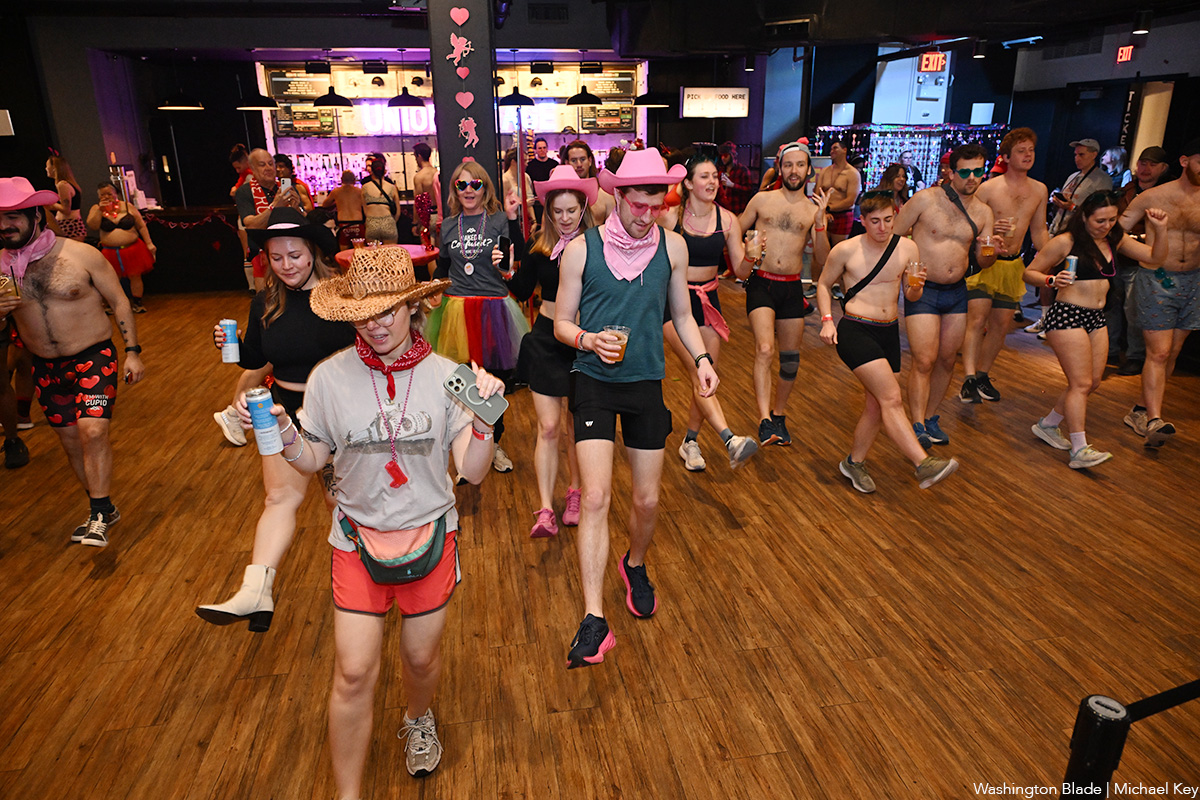
Cupid’s Undie Run, an annual fundraiser for neurofibromatosis (NF) research, was held at Union Stage and at The Wharf DC on Saturday, Feb. 21.
(Washington Blade photos by Michael Key)
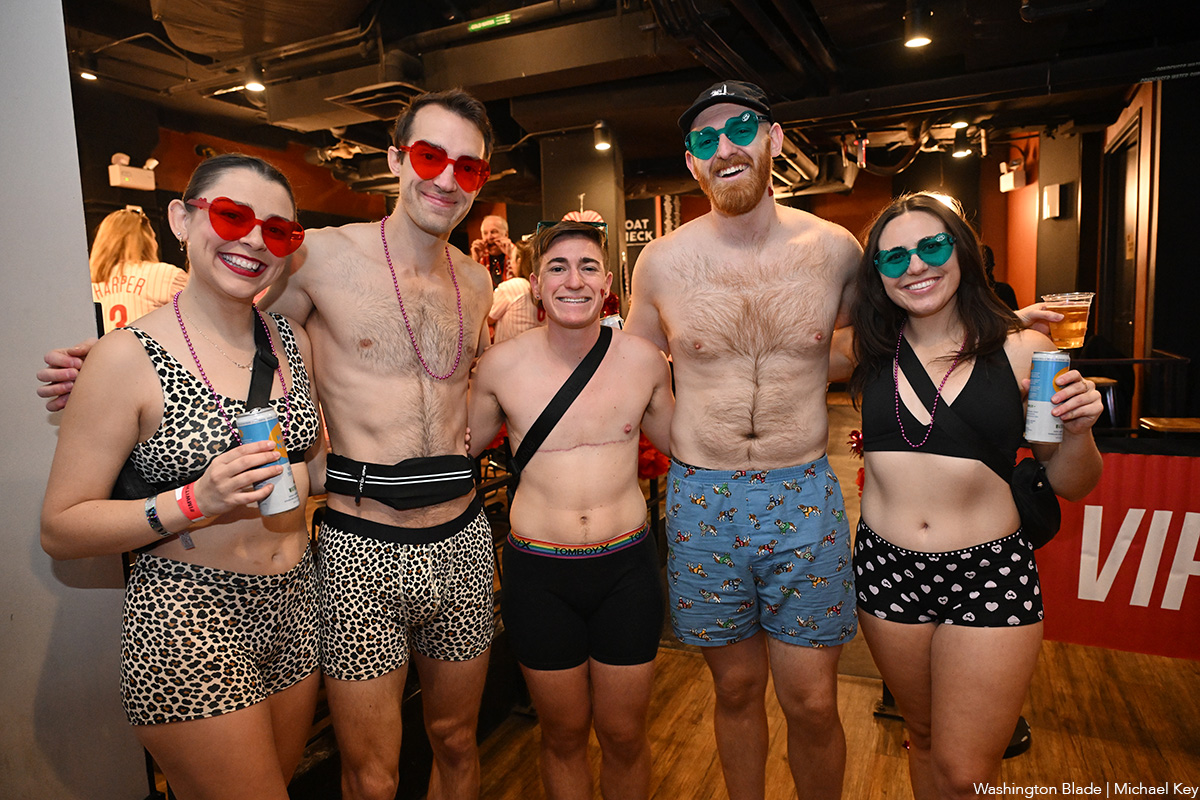
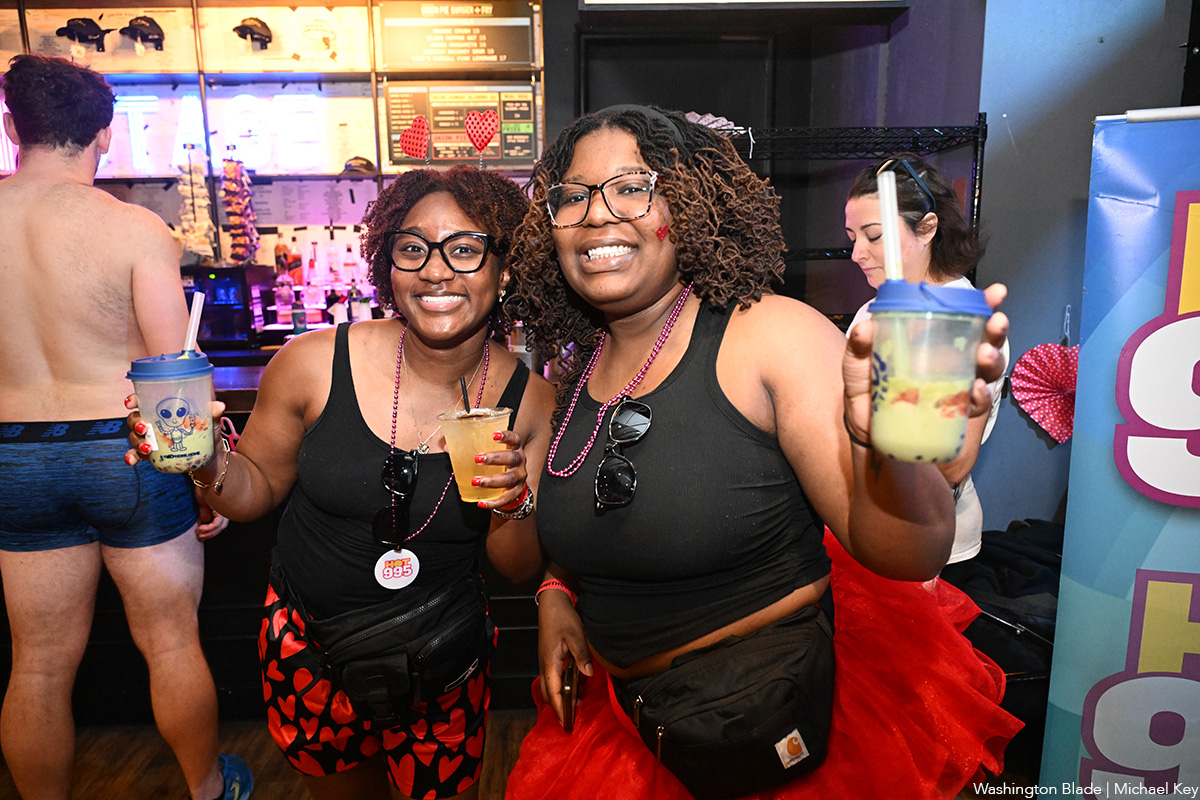
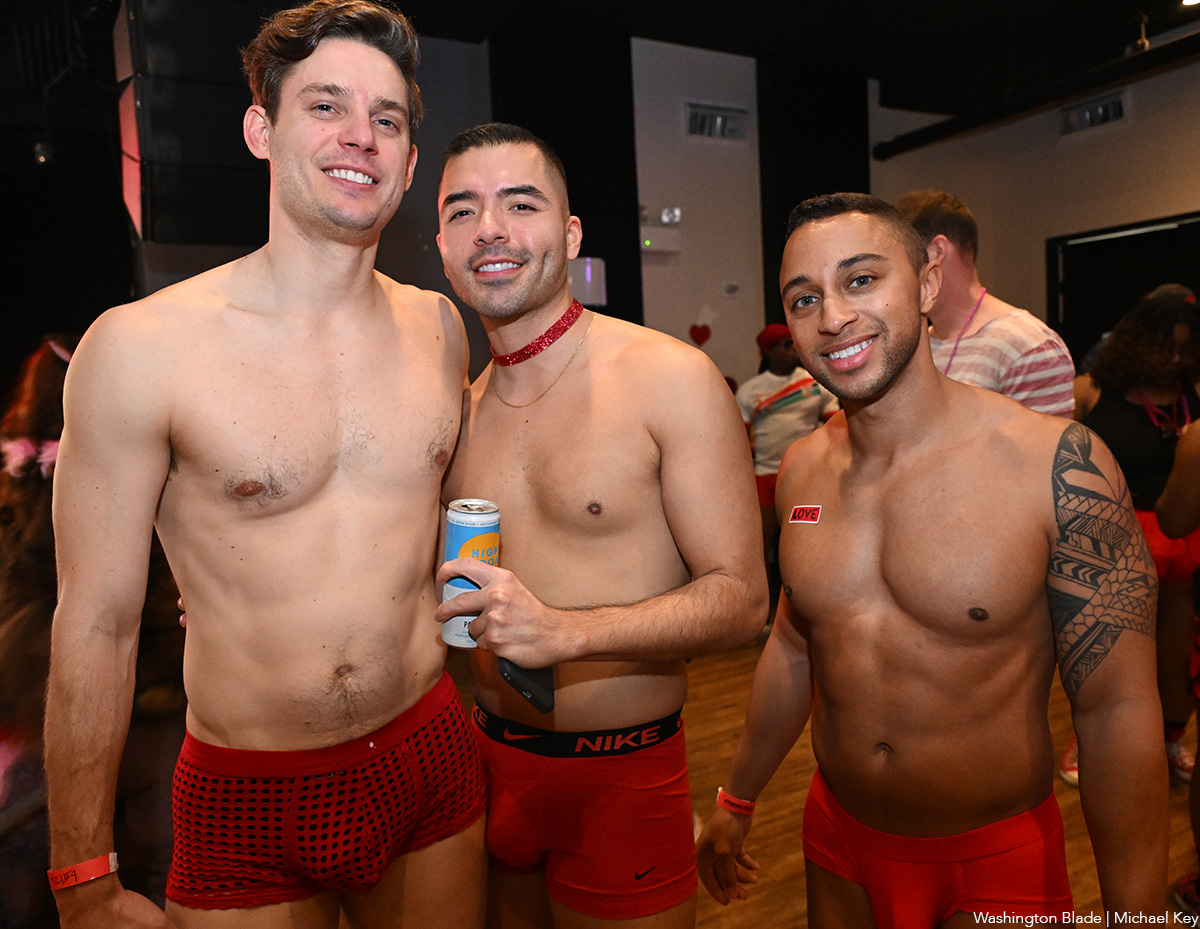
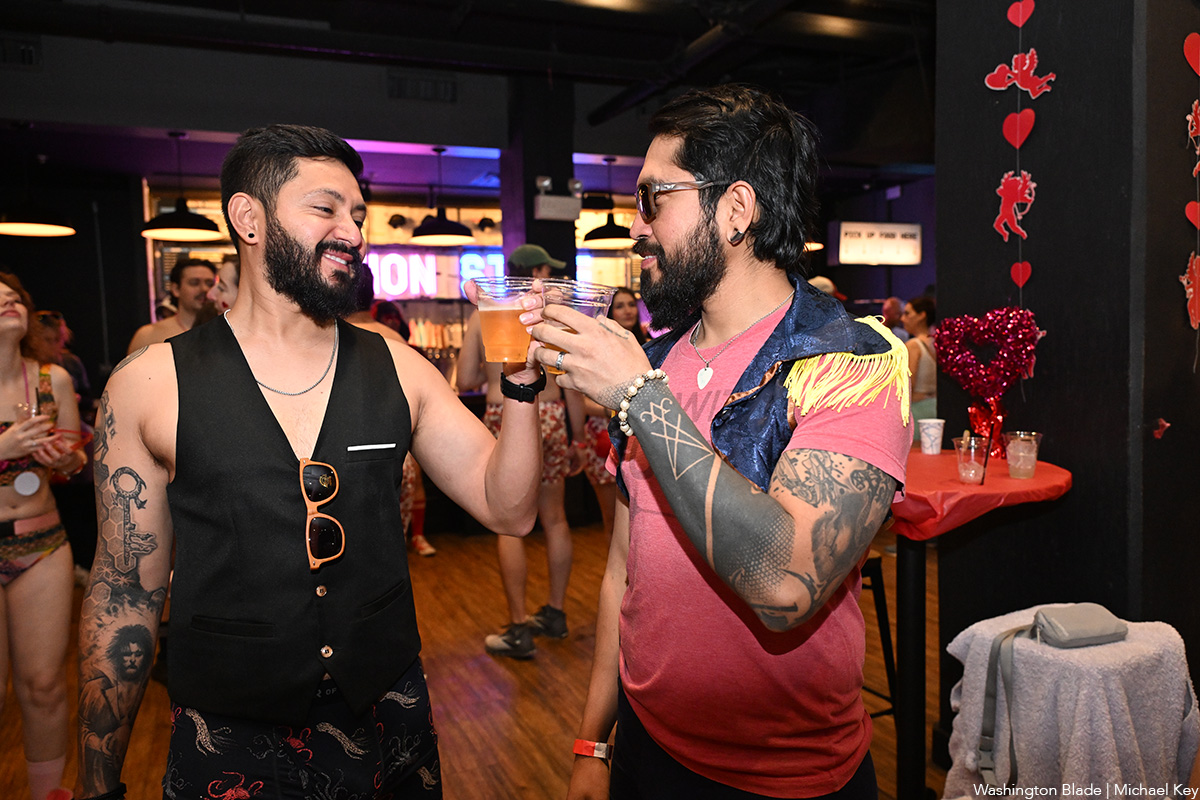
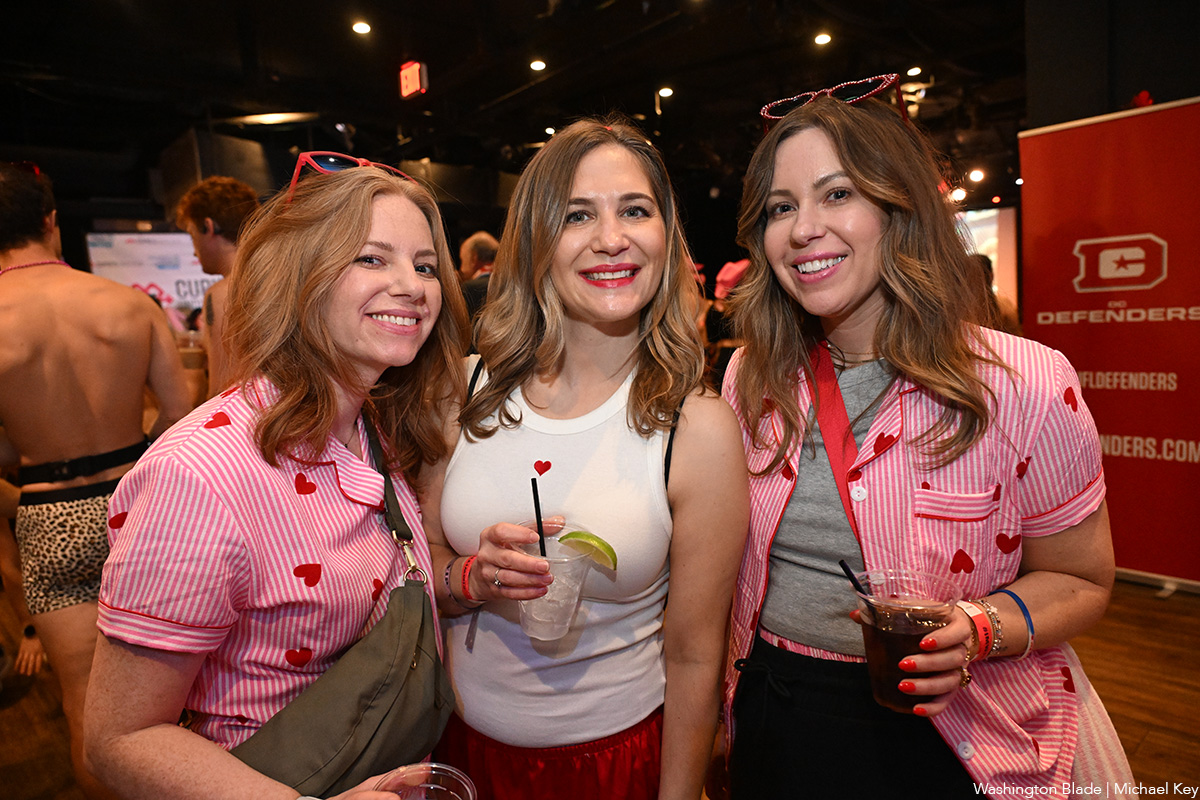
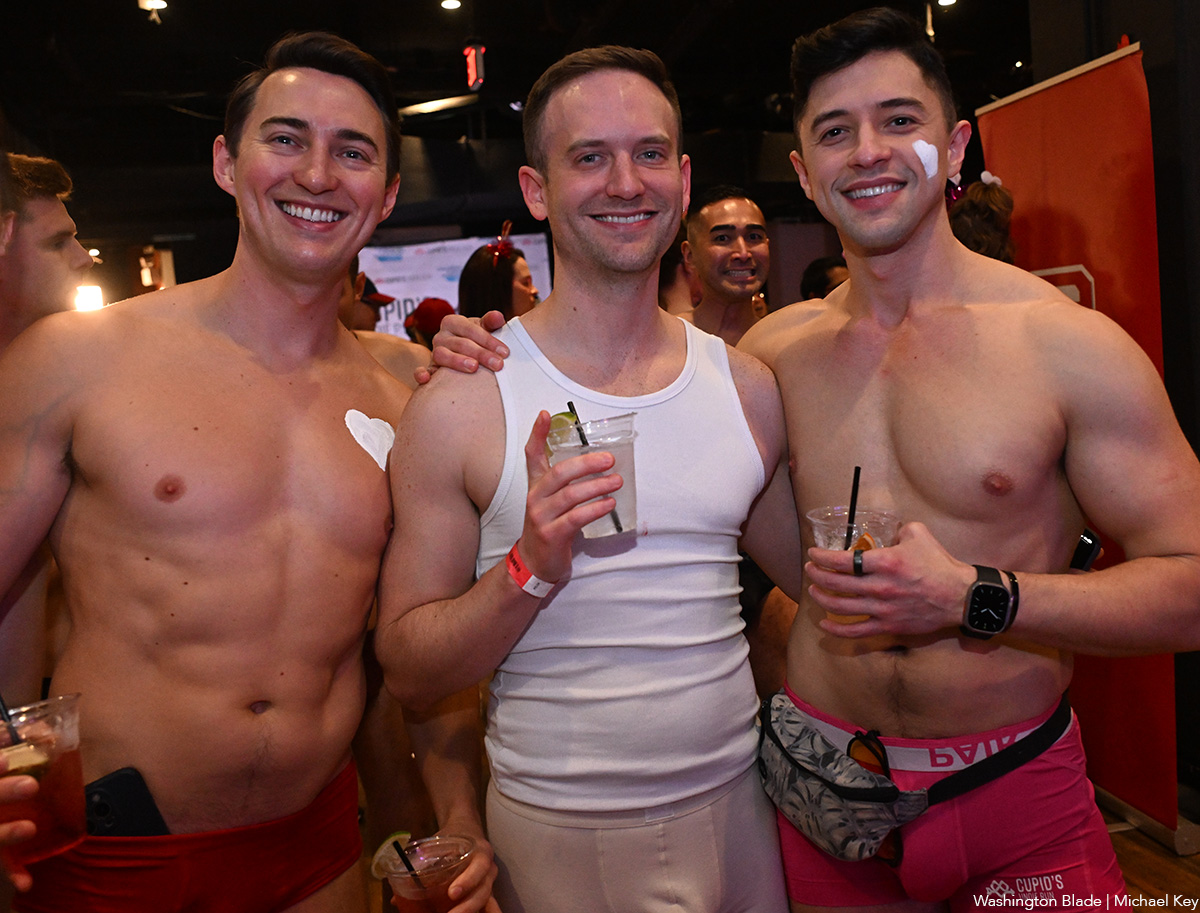
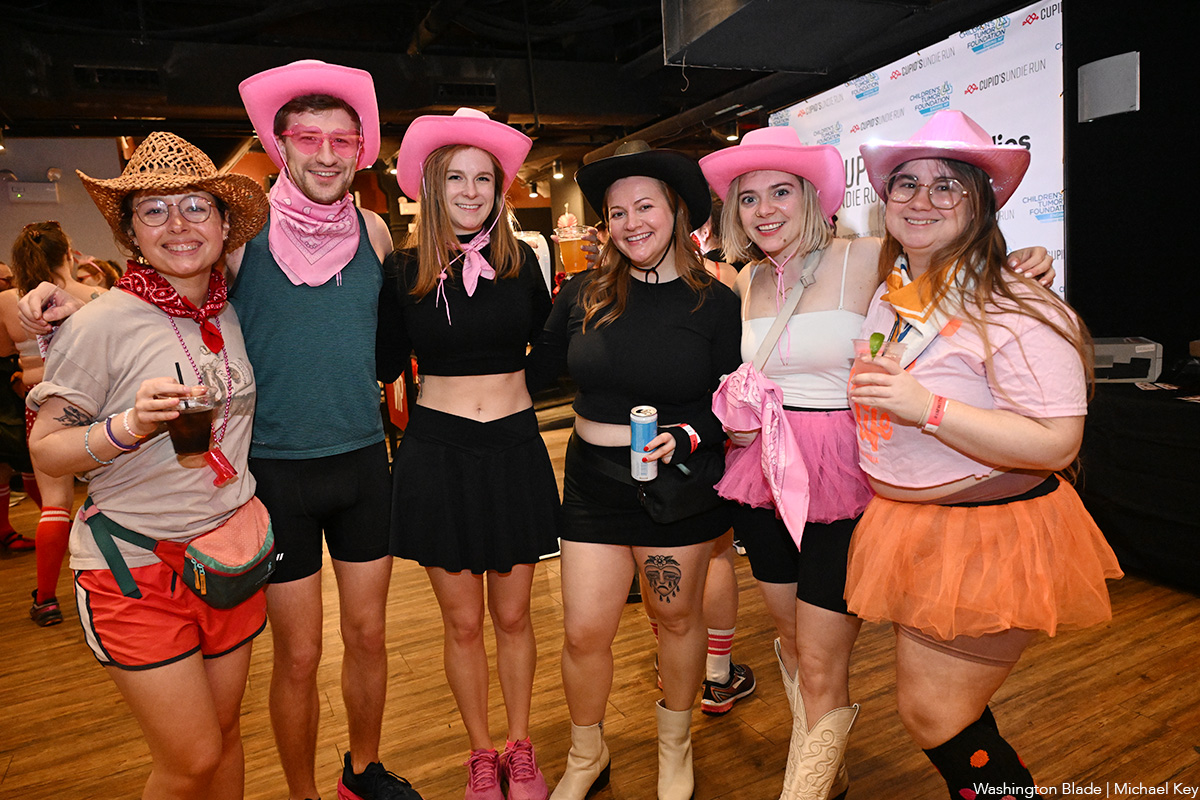
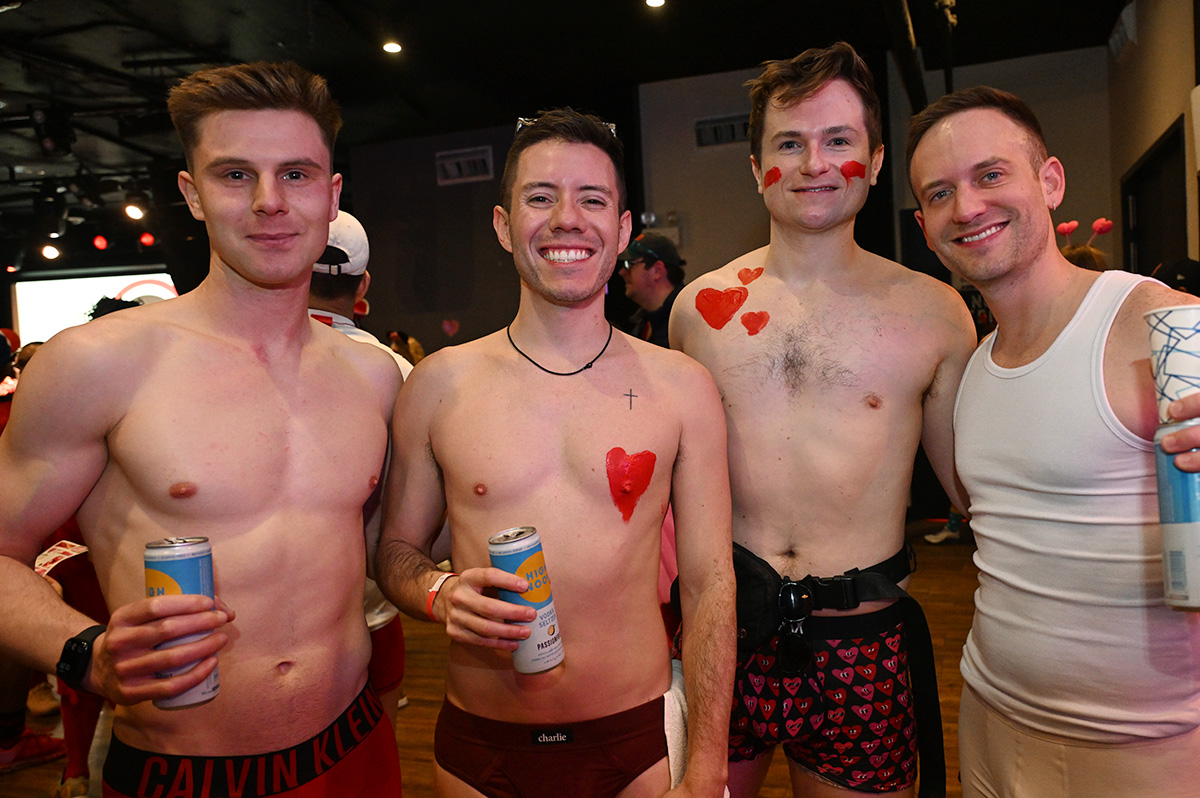
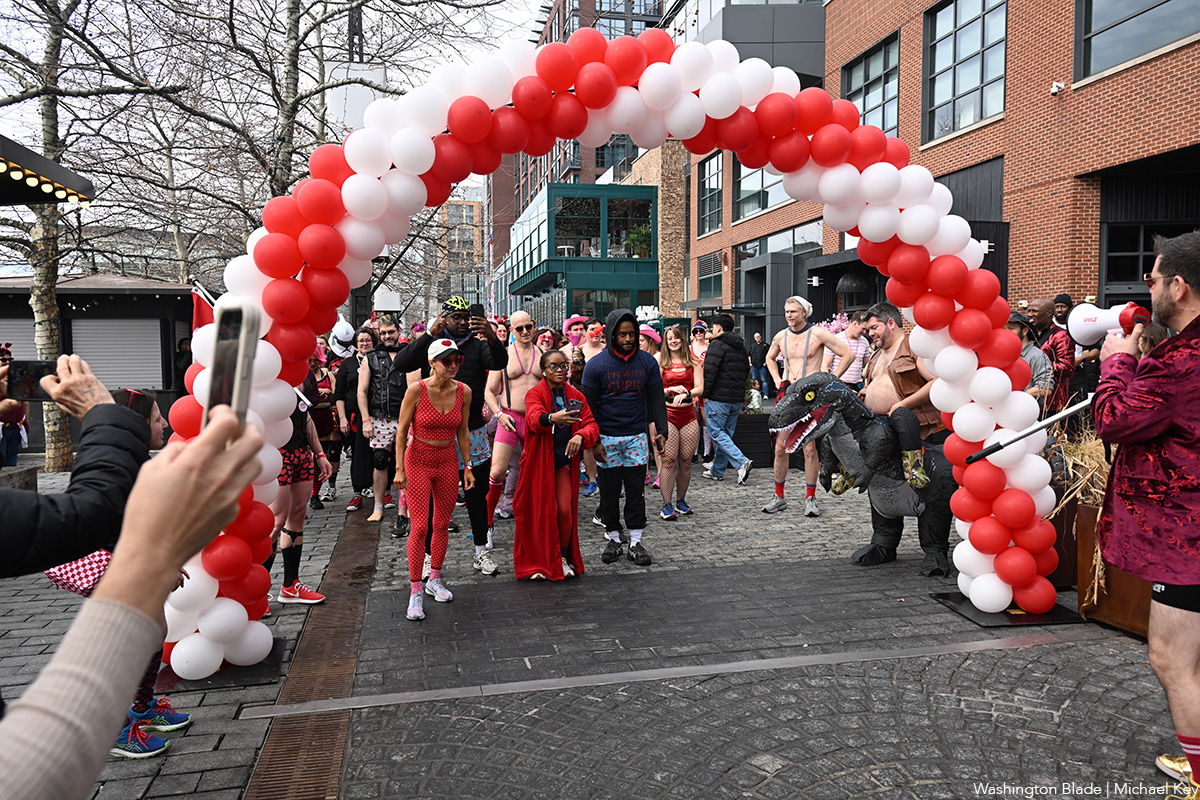
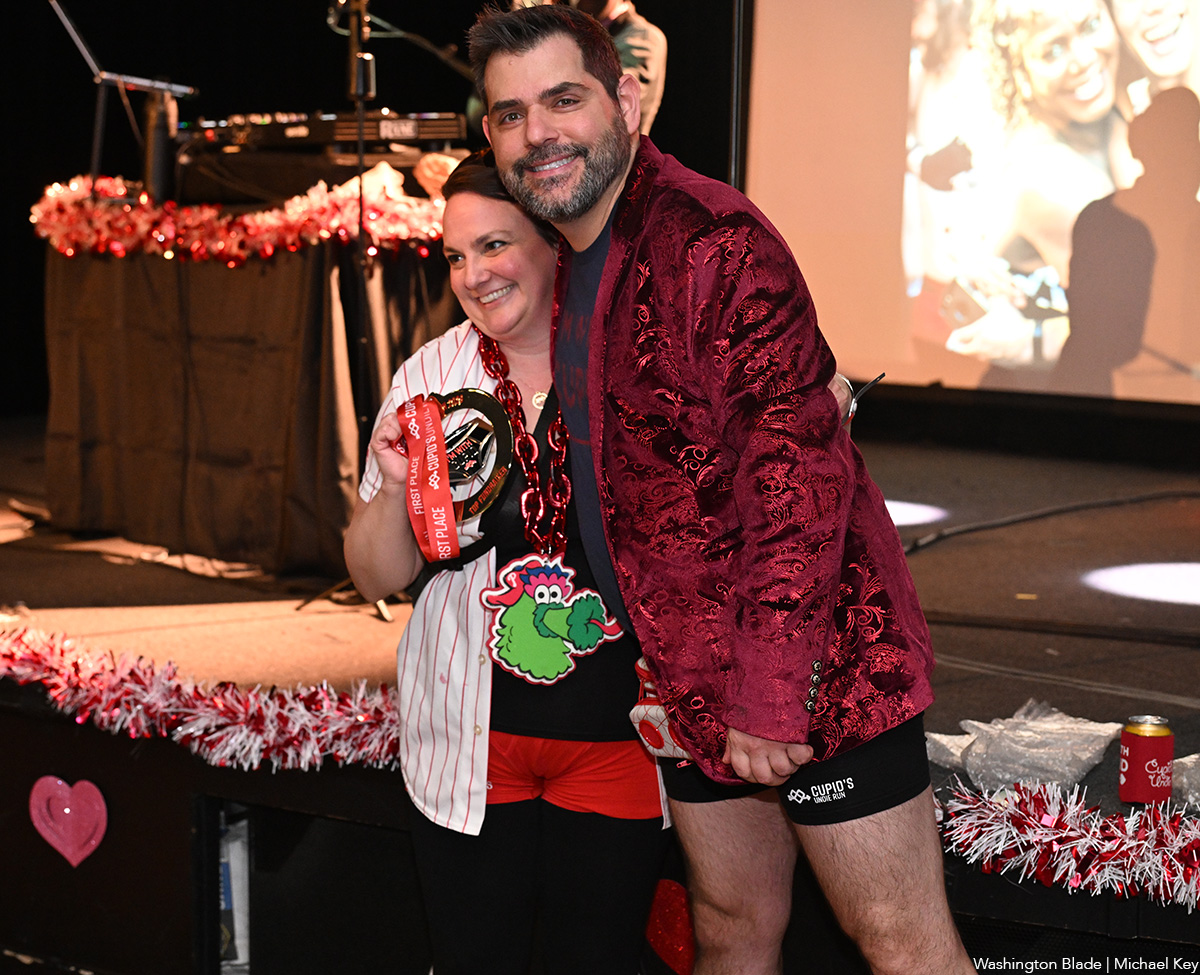
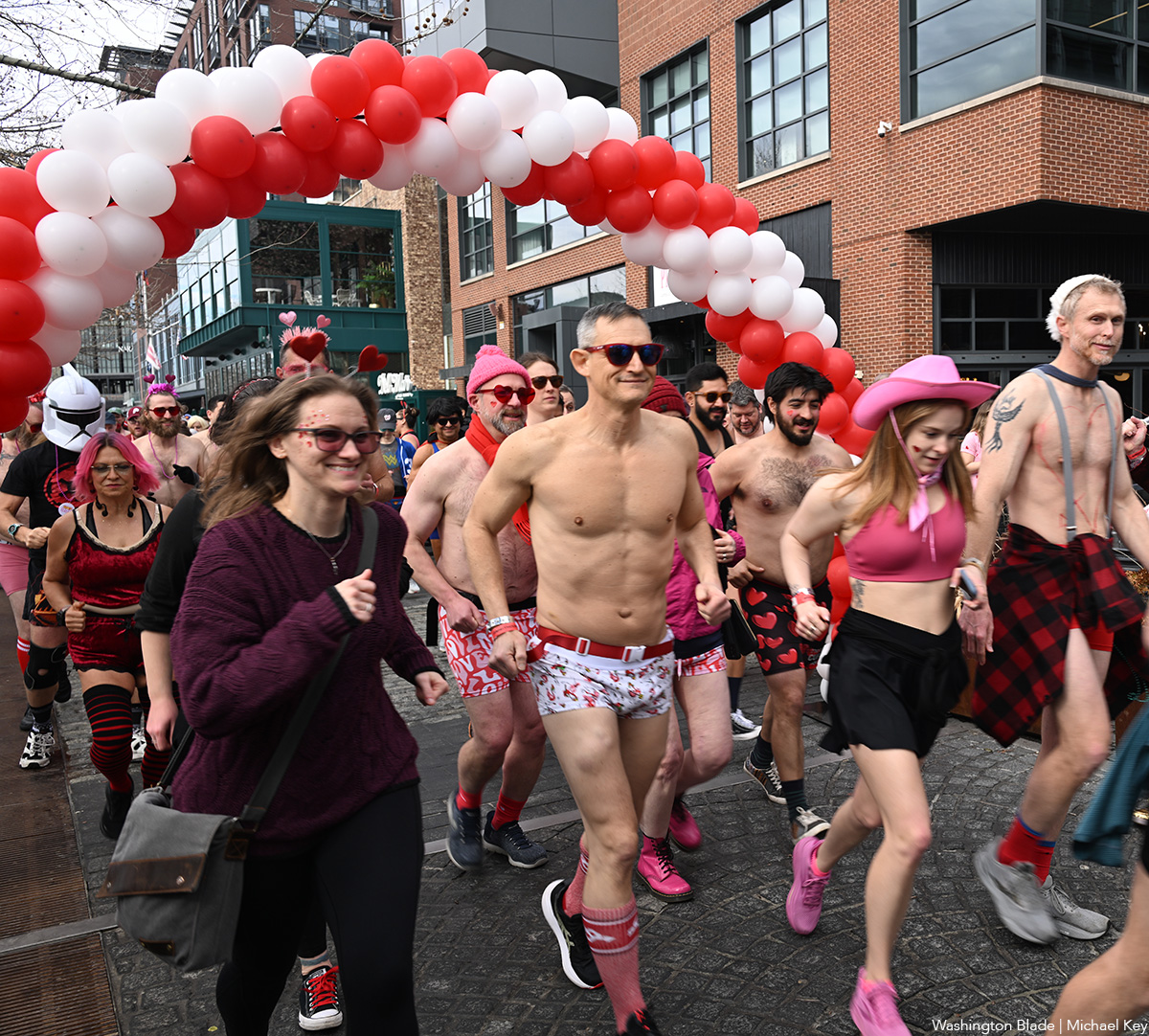
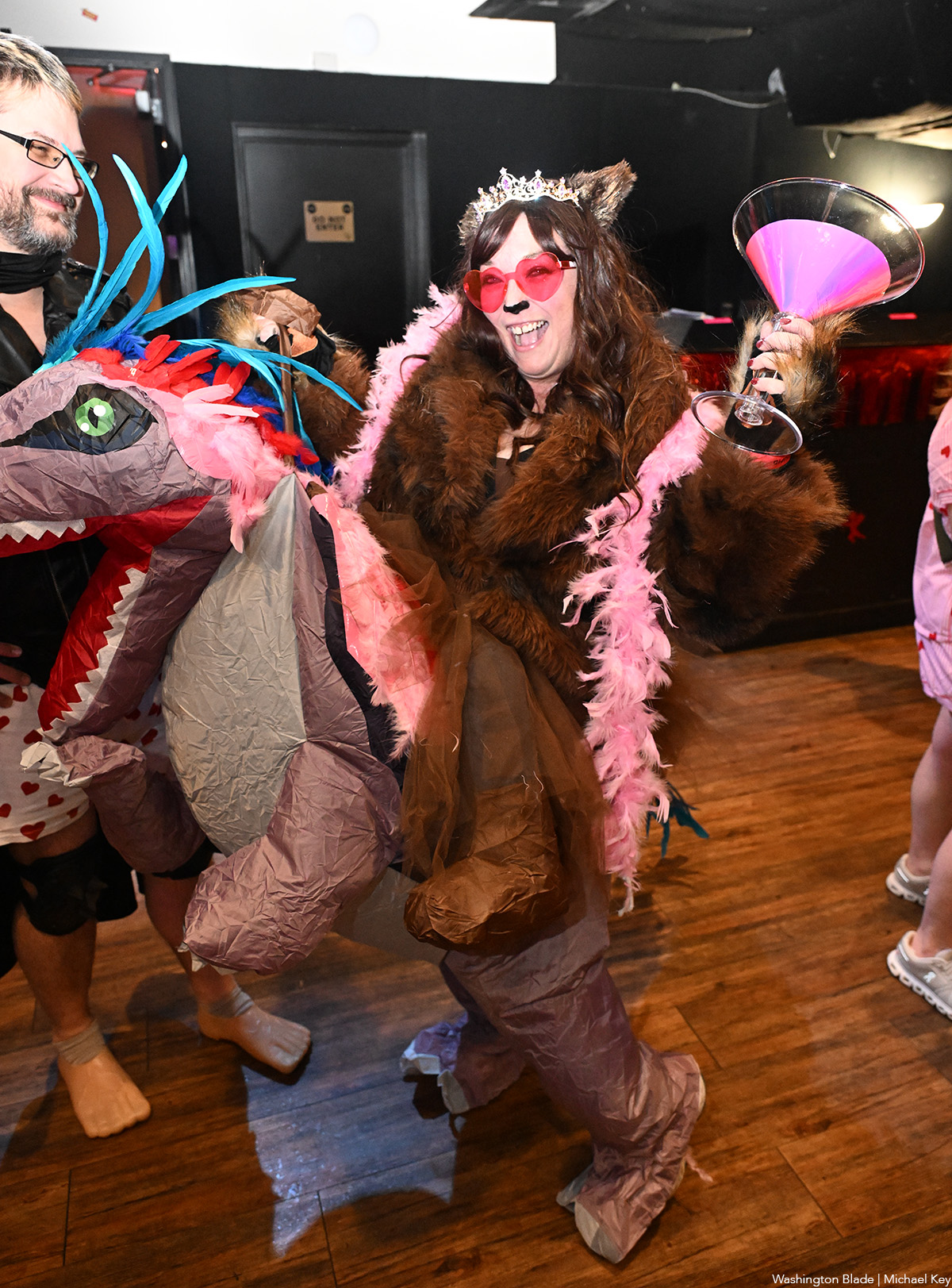
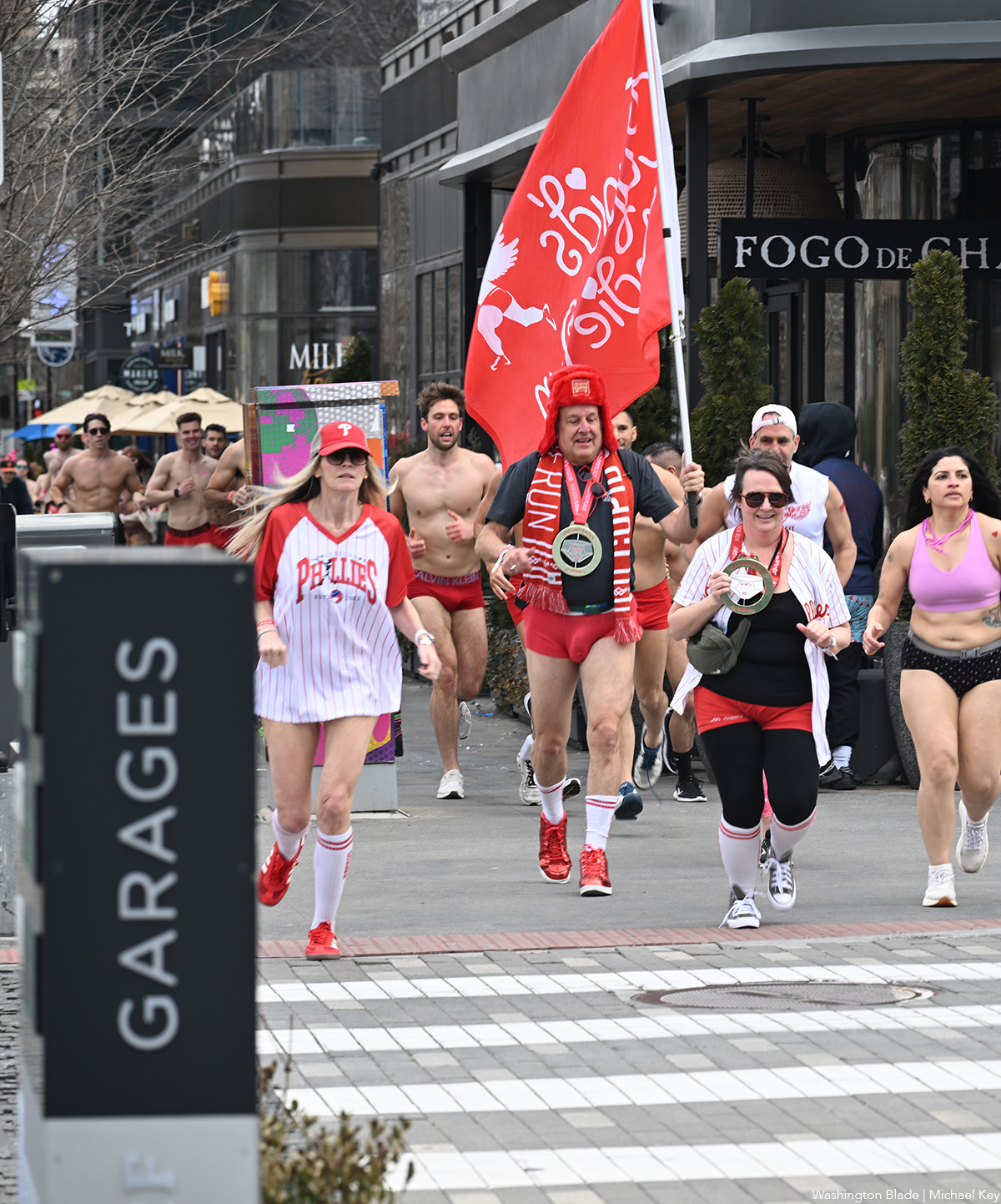
-

 Movies4 days ago
Movies4 days agoRadical reframing highlights the ‘Wuthering’ highs and lows of a classic
-

 District of Columbia3 days ago
District of Columbia3 days agoJudge rescinds order against activist in Capital Pride lawsuit
-

 District of Columbia3 days ago
District of Columbia3 days agoTrans activists arrested outside HHS headquarters in D.C.
-

 Ecuador4 days ago
Ecuador4 days agoJusticia reconoce delito de odio en caso de bullying en Instituto Nacional Mejía de Ecuador




















